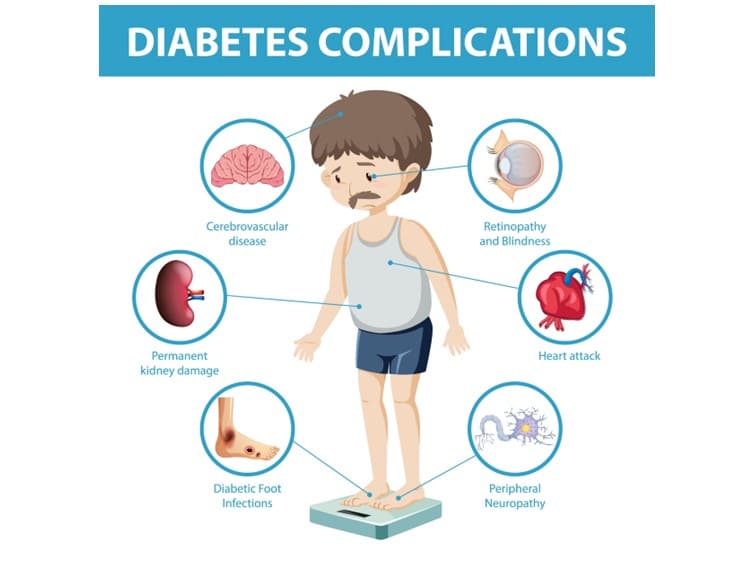Diabetic Kidney disease (DKD) is common in people with diabetes. DKD gradually leads to chronic kidney disease (CKD). Both type 2 and Type 1 diabetes can cause kidney disease. One in three adults with diabetes has chronic kidney disease. Diabetic kidney disease is a silent and slow process occurring over several years. However, with timely diagnosis, proper management, and care, people with diabetes can prevent or delay kidney damage.
If you have diabetes and you are wondering whether you may be able to prevent kidney disease, then you should not worry – it is possible to prevent diabetes-related kidney disease or delay it by regular screening and follow-up care. Early detection of diabetes with screening helps in prompt treatment and preventing its complications.
How does diabetes cause kidney disease?
High levels of glucose or sugar in the blood can damage the blood vessels in the kidneys. Which in turn damages the filtering units or nephrons. Damaged blood vessels and nephrons don’t work properly leading to chronic kidney disease and kidney failure. High blood pressure is the other major cause of kidney disease. Many people with diabetes also develop high blood pressure. People with both diabetes and high blood pressure are at a major risk of developing chronic kidney disease.
Learn more about Diabetic Kidney disease
Facts about Diabetes and Kidney Disease
Diabetes is a major cause of blindness, kidney failure, heart attacks, stroke, and lower limb amputation.
About 70% of patients with kidney failure have diabetes.
You cannot prevent type 1 diabetes.
You can prevent type 2 diabetes through regular exercise or physical activity, a healthy diet, avoiding tobacco use, and maintaining a healthy body weight.
If you have diabetes and if you smoke, then your risk of developing diabetic kidney disease is very high – but, you can reduce the risk of developing type 2 diabetes by around 30 to 40% if you quit smoking.
Regular screening should be a part of the diabetes management plan. It will help in the early detection of kidney disease and the prevention of complications associated with it.
Screening for diabetic individuals includes screening for kidney disease, regular eye exams, and foot assessment.
Diabetes and TB
In people with diabetes, the risk of tuberculosis (TB) is twice compared to healthy people. Diabetic people are also at a higher risk of developing multi-drug-resistant TB. People with both TB and diabetes are twice as likely to die during TB treatment and have twice the risk of TB relapse after treatment completion.
Bottom Line
Diabetes can silently and progressively damage your kidneys and eventually lead to chronic kidney disease and kidney failure. Therefore, if you have diabetes, you must check your kidneys regularly by consulting your nephrologist. Your doctor screens for kidney disease by employing simple blood and urine tests. This is the best way to detect chronic kidney disease early for the most effective treatment. Your timely action can help prevent serious health issues and complications.

Leave a Reply